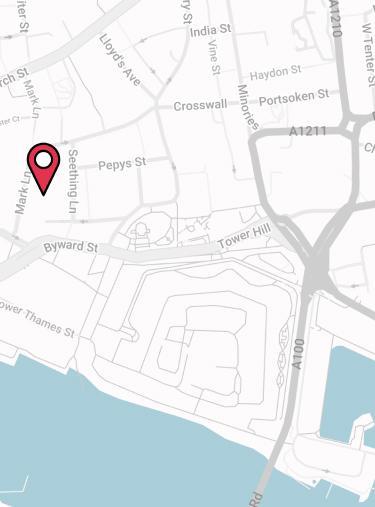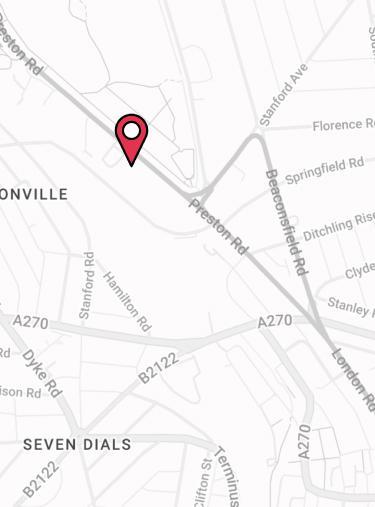
Top 10 Ways Contractors Can Be More Tax-Efficient
There are a number of benefits to working through your own limited company, which is why so many contractors set themselves up as shareholding company directors of their own businesses. Advantages include:
- More room for tax planning in how you receive your income – you’ll typically pay yourself a mixture of salary and dividends to maximise the tax-efficiency of your drawdown
- The ability to claim tax relief on a variety of expenses for items and services purchased wholly for business purposes
- Greater financial security – by separating yourself from the business, your personal assets are not at risk if the company encounters difficulties
- The ability to appoint other shareholders who can draw income from the business, such as spouses
- The receipt of tax relief on securing your future by setting up a pension through your business.
The below ten tips are an informal guide to saving money as a contractor – for more detail and formal tax advice, please don’t hesitate to get in touch.
- Top up a small salary with dividends
- Start a pension
- Rope in your spouse
- Make working from home work for you
- Phone no friends
- Protect your life
- Protect your income
- Drive yourself wild
- Earn while you learn
- Party down
Draw a Tax-Efficient Income from Your Business
Income Tax
When you work for someone else as a salaried employee, you typically receive all your wages as income and are therefore subject to Income Tax.
In the 2023/24 tax year in England, Wales and Northern Ireland (bands are different in Scotland), Income Tax is due at:
- 0% on your personal allowance of £12,570
- 20% (basic rate) on all earnings between £12,571 and £50,000
- 40% (higher rate) on all earnings between £50,001 and £125,140
- 45% (additional rate) on all income in excess of £125,140.
Note that you don’t get a personal allowance on taxable income over £100,000. However, you may be able to reclaim some of your personal allowance if you’ve lost it because you’re a high earner.
National Insurance Contributions
Salaried employees also have to pay National Insurance Contributions, as will their employer.
As a contractor working through your own limited company, however, you don’t have to receive all your earnings as income. In fact, most contractors opt to pay themselves a small PAYE salary and top the rest up in dividends, reducing their tax bill.
If you pay yourself a salary of less than £12,576 in the 2023/24 tax year, no National Insurance Contributions are due from either your company or from you personally, but you’ll still qualify for credits towards the state pension.
Many contractors then choose to pay themselves a far more significant dividend. Everyone has a £1,000 dividend allowance in 2023/24 which you can receive without paying tax.
Thereafter, the rates of dividend tax vary depending on which tax bracket you’re in, which is based on taxable income from all other sources. In 2019/20:
- Basic rate taxpayers pay dividend tax at 8.75%
- Higher rate taxpayers pay dividend tax at 33.75%
- Additional rate taxpayers pay dividend tax at 39.35%.
Start a Pension
Pensions for contractors are a great way to receive tax relief while providing yourself with future financial security.
Tax relief on pension contributions is available at both the personal and company level, although many company directors paying themselves a small salary and topping up with dividends face a strict cap on the amount they can contribute to a pension and still receive tax relief.
Each tax year, an individual is limited to receiving tax relief on pension contributions at the lower of £60,0000 or 100% of PAYE salary.
For those contractors paying themselves only a minimal PAYE salary, this limits contributions that can be made personally and attract tax relief. As an individual making pension contributions, you receive tax relief at your highest marginal rate, so 20%, 40% or 45% depending on your earnings.
This means a basic rate taxpayer can achieve a £100 gross pension contribution that actually only costs £80 net, because the government adds £20 in tax relief.
Where your scope for personal contributions is stunted, this is where your limited company can step in to top up your pension contributions direct from the business. These are usually a tax-deductible business expense against your Corporation Tax bill providing they pass the ‘wholly and exclusively’ test, i.e. the employer pension contribution is deemed ‘wholly and exclusively’ for the purposes of the employer’s trade or profession.
HMRC applies the ‘wholly and exclusively’ test by establishing whether the level of total remuneration – i.e. salary, dividends, bonuses, benefits in kind, pension contributions etc. – is commercially reasonable for the work being done.
Always check with your accountant before making any large pension contributions via your limited company.
Spousal Privilege
Any shareholder in a limited company can receive dividend payments from the business. As such, it’s common for many contractors to include their spouses / partners as shareholders in their limited company.
Even if they’re in a non-profit generating role, partners can still draw a salary and dividend from the company in a similar way to you as the main generator of profit.
This allows you to utilise a second person’s income tax and dividend allowances to draw from the company tax-efficiently and provide your household with a combined income from the business.
Make Working from Home Work for You
Many contractors don’t have separate business premises. Especially for contractors providing services, many might work largely from home.
If you work from home as a contractor, the easiest way to claim tax relief for doing so is using HMRC’s flat rate relief for home working. Without needing to provide any receipts / evidence, you can claim £4 per week, £18 per month or £208 per year as a tax-deductible business expense.
This excludes business telephone / Internet costs, which can be claimed separately (see below).
However, as an alternative to the flat rate you can claim expenses when using your home as a place of work but the rules are complex.
Firstly, you must have a dedicated space within the home that you can call your workspace – occasional invoicing at the kitchen table is unlikely to pass muster with HMRC.
Getting business insurance in place to cover the assets you use for work purposes at your residential address is another way to bolster your claim to being able to deduct certain household expenses incurred by home working.
Business expenses for home working are then generally based on the proportion of your home you’re using for business purposes and the time spent doing business in that proportion of your home. So if you’re using one room out of five in your home for business purposes, you may be able to claim up to 20% of household running costs as a business expense.
This might include costs such as:
- Fixed costs
E.g. Council Tax, mortgage interest (NOT capital repayments) / rent, water rates and general repairs - Running costs
E.g. heating, lighting / electricity, cleaning
You must actually be performing a significant proportion of income-generating work from home to claim the above expenses. If in doubt, seek advice from your accountant and / or your local inspector of taxes.
Other Expenses
You can claim for other items for your home office, such as office furniture. Desks, chairs and filing cabinets etc. are all typically tax-deductible business expenses providing your personal use of these items is insignificant or non-existent.
For computer equipment, if the business is paying for it and you’re claiming it as a business expense then the equipment must be used for the purposes of business. Any personal use of it must be purely ‘incidental’.
Purchasing computer equipment through the company and then using it for any more than ‘incidental’ personal use could see HMRC claim that the equipment has a duality of purpose and, as a result, you could find yourself taxed on the value of the purchase as a ‘benefit in kind’.
Phone No Friends: Telephone Business Expenses
There are two golden rules that govern the tax status of home-based landline contracts which are used for business purposes as part of home working:
- The expenses you charge to the business must have been wholly and exclusively incurred in the course of your trade
- Where there is a duality of purpose, i.e. you would have incurred the cost personally regardless of any business use, then you will pay extra tax (a benefit in kind charge) if you put these expenses through your business.
Phone Calls
Using an itemised telephone bill, if you can weed out the cost of business calls from your domestic home landline / personal mobile you can typically charge these as a legitimate business expense. This said, it can be problematic to separate business and personal calls made from landlines and mobile phones due to ‘packages’ and ‘bundles’ of calls that come with your bill (e.g. ‘1,000 free monthly minutes’).
If you can’t separate the business element of your personal phone usage, you cannot make a claim due to the duality of purpose rules, as any business calls cost nothing extra on top of what you already pay for personal calls.
However, if you have a second phone line installed at home purely for business use – or a business mobile phone contract – and the bill is charged to your limited company then the entire cost of the line is usually a business expense (providing any personal use of the line is purely ‘incidental’).
Tax-Efficient Life Insurance
While working for yourself has many benefits, this doesn’t include the luxury of employer-provided benefits such as Group Life Insurance.
Instead you could take out Life Insurance personally, paid for from post-tax earnings out of your own bank account. However, there is another option that provides far greater tax-efficiency: Relevant Life Insurance.
Relevant Life Insurance is a way to provide yourself with life protection through your limited company.
The business owns the policy and pays for the premiums but, should the worst happen, the benefit is paid out into a specially-drafted trust. This arrangement means that there’s no tax to pay on the benefit from either your perspective or the business’ perspective. What’s more, premiums are eligible for Corporation Tax relief.
Another benefit is that you pay for Relevant Life Insurance from pre-tax funds. This is opposed to a personal policy, where you’re paying for it out of post-tax income (money that’s already had the likes of Dividend Tax, for example, deducted).
Given the range of reliefs that Relevant Life Insurance is eligible for, you can make significant tax savings over a personal policy – calculate these savings here >>
Protect Your Income
Another potential downside to contracting is a lack of employer-provided sick pay.
This can be addressed with an Income Protection policy, which is designed to pay out a percentage of your earnings if you can’t work due to accident or sickness.
Just as with Relevant Life Insurance, you can get specialised Income Protection for contractors that can be owned and paid for by your limited company.

Income Protection for contractors is slightly more complicated than personal options because it’s paid for by your company. That’s why it’s best to speak to an adviser to make sure there are no unforeseen tax implications.
Michael Barrow
Independent Protection Specialist at Drewberry
Business Mileage
Where you need to travel for work (providing it’s to a ‘temporary’ place of work, i.e. you’re based there for less than 24 months), you can typically claim business expenses for that travel.
Costs that can be claimed include:
- Train and tube fares
- Mileage allowances
- Car parking
- Tolls
- Taxis
- Flights.
If you’re claiming mileage allowance because you’re driving your personal car for work reasons, you can claim:
- 45p per mile for the first 10,000 miles travelled in a car or van and 25p for all miles thereafter
- 24p per mile for all miles travelled on a motorcycle
- 20p for all miles travelled on a bicycle.
Earn While You Learn: Tax-Deductible Training
As long as the training you undertake is ‘wholly and exclusively’ for the purposes of trade and is for the advantage of the company, such as improving your productivity, you can usually claim the cost as a tax-deductible business expense.
Courses you might be able to claim as an expense include:
- How to deal with stress
- Management skills
- Time management
- Leadership.
Other courses that don’t have an immediate impact on the business may also be claimable. For instance, IT contractors providing IT support may be able to claim for a course teaching web design if they’re looking to expand their company in that direction going forward.
Party Down
Every year, a limited company gets a £150 per head ‘budget’ to spend on an annual, recurring event for staff. This could be a Christmas party or summer barbecue, for instance.
As long as it’s open to all staff working for the limited company the cost of the annual event is a tax-deductible business expense against your Corporation Tax bill. So have a ball!
Tax Advice for Contractors
Whether you’re a long-term contractor or are thinking of going out into the world of contracting for the first time, there’s lots to think about.
Fortunately, Drewberry is here to help with the more complicated aspects of contracting, so if you ever need help don’t hesitate to get in touch.
Why Speak to Us…
We started Drewberry because we were tired of being treated like a number and not getting the service we all deserve when it comes to things as important as protecting our health and our finances. Below are just a few reasons why it makes sense to let us help.
- There is no fee for our service
- We are independent and impartial
Drewberry isn’t tied to any insurance company, so we can provide completely impartial advice to make sure you get the most appropriate policy based solely on your needs. - We’ve got bargaining power on our side
This allows us to negotiate better premiums for you than you going direct yourself. - You’ll speak to a dedicated specialist from start to finish
You will speak to a named specialist with a direct telephone and email. No more automated machines and no more being sent from pillar to post – you’ll have someone to speak to who knows you. - Benefit from our 5-star service
We pride ourselves on providing a 5-star service, as can be seen from our 4100 and growing independent client reviews rating us at 4.92 / 5. - Gain the protection of regulated advice
You are protected. Where we provide a regulated advice service we are responsible for the policy we set-up for you. Doing it yourself or going direct to an insurer won’t provide this protection, so you won’t benefit from these securities. - Claims support when you need it the most
You have support should you need to make a claim. The most important thing when it comes to insurance is that claims are paid and quickly. We are here to support you during the claims process and make sure it’s as smooth and stress free as possible.

For help and advice in this area, don’t hesitate to get in touch. The specialists at Drewberry are only a phone call away on 02084327333. Alternatively, you can email help@drewberry.co.uk.
Tom Conner
Director at Drewberry
- Topics
- Contractors
Contact Us
125-135 Preston Road
Brighton
BN1 6AF
Cookies
Drewberry™ uses cookies to offer you the best experience online. By continuing to use our website you agree to the use of cookies including for ad personalization.
If you would like to know more about cookies and how to manage them please view our privacy & cookie policy.






